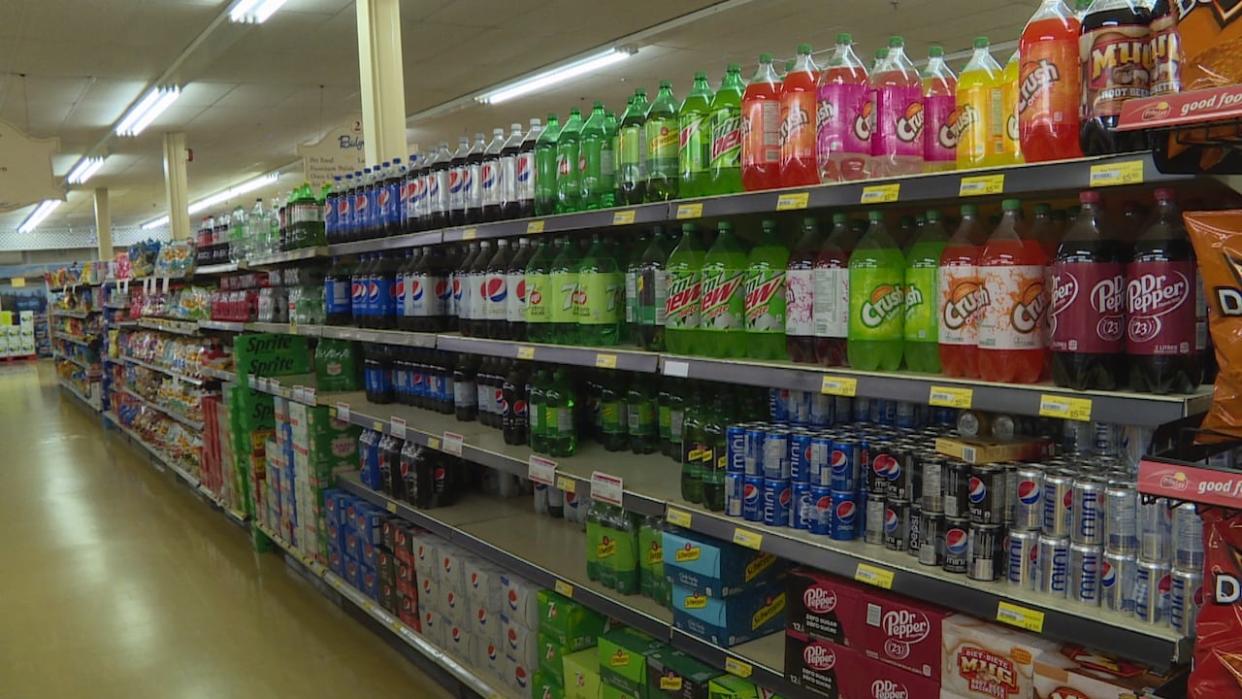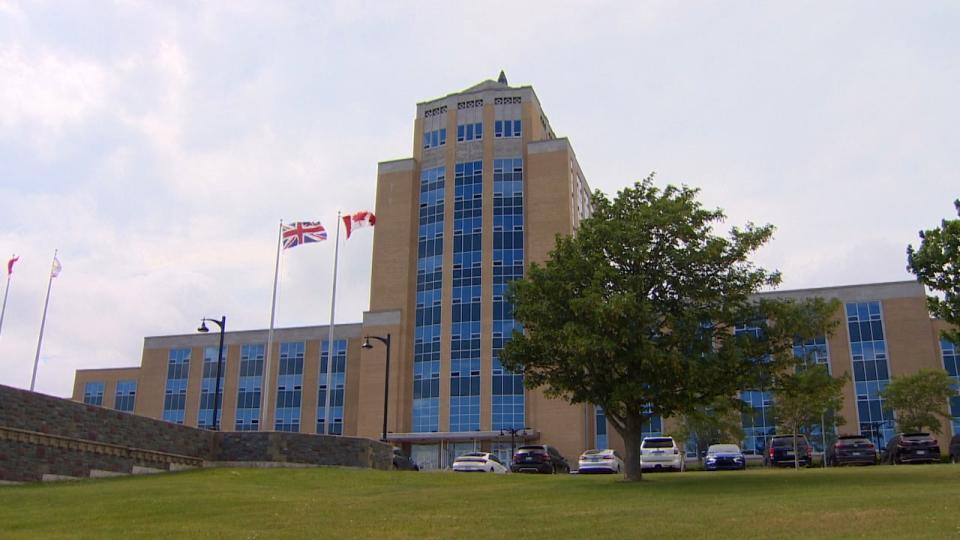N.L.'s sugar tax is a year old. The government collected $11M but can't — or won't — say if it's working


Newfoundland and Labrador's sugar-sweetened beverage tax was implemented a year ago. (Kyle Mooney/Radio-Canada)
One year after Newfoundland and Labrador ushered in a controversial tax that was intended to deter the public from buying sweetened beverages, the government can't say if it's had the desired effect.
The sugar-sweetened beverage tax was met with pushback from Day 1, from opposition politicians who called it a cash grab and experts who doubted the tax would work. A year later, opponents of the tax, the first of its kind in Canada, are still dubious about its effectiveness.
Rachel Prowse, an assistant professor of nutrition and dietetics at Memorial University has been following the effects of the tax closely.
"We're kind of looking at multiple different outcomes along the continuum to see the effect of provincial policy on essentially beverage prices," Prowse said Thursday.
"Does the tax actually increase the price of the beverage in the store? Does it actually change how people are purchasing different beverages? Does it change how people are consuming beverages? And at the end of the day does it change sugar intake and diets?"
In an emailed statement to CBC News, the Finance Department said the tax collected $11 million in revenue in the last year — 22 per cent more than anticipated.
But the province isn't releasing sales data, which would indicate whether the tax actually changed shopping habits. Instead, the department said, it gathered information from residents before the tax was launched and plans to conduct "a post-implementation survey for comparison."
"It takes time to see the impact of policies or programs designed to impact health outcomes," reads the statement. "The sugar-sweetened beverage tax is just one of several initiatives being undertaken to support the health and wellness of residents of the province as we strive to make Newfoundland and Labrador one of Canada's healthiest provinces by 2030."

The provincial government says it has collected $11 million from the tax over the last year. (Curtis Hicks/CBC)
What is known is that the sticker price on store shelves doesn't reflect the tax, and Prowse says that means consumers won't see the increased price until they have their receipt — which won't help people make a decision while shopping.
"If you're making a decision over a sugary beverage or a non-sugary beverage you might not see any price difference there to actually incentivize you to choose one or the other," she said.
Krista Scaldwell, president of the Canadian Beverage Association, which represents soft drink producers, says the tax unfairly singles out her industry.
Consumers were already turning to diet or unsweetened drinks before the tax launched, she said.
"We don't think it's necessary," she said from her home in Ontario. "Many food items contain sugar, but beverages have been the one to face the tax when the reality is the sector is doing a lot of great work on balanced calories to educate consumers and ensure they know what the sugar content is, they know what a low calorie choice is available to them," she said from her home in Ontario.
Some shoppers in the the Goulds neighbourhood of St. John's this week said they haven't changed their buying habits. Others said they don't plan to.
"We just carry on the same way as we always did. We like our pop and our juices. It all got sugar," said Carolann Zulatink. "It didn't deter me and I'm still healthy."
The provincial government said revenue from the tax is being used to fund its glucose-monitoring pilot program, physical activity tax credit, healthy living initiatives such as the pre-natal infant nutrition supplement, school breakfast and lunch programs and support for recreation, physical activity, athletic and sport development.
Get the news you need without restrictions. Download our free CBC News app.


